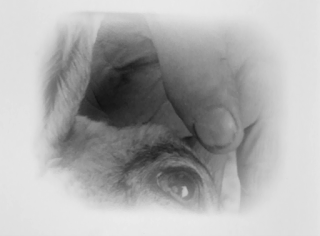The San Francisco Bay Area is still home to a rich cinephilic culture nurtured in large part by a diverse array of cinemas, programmers and moviegoers. I'm honored to present a selection of favorite screenings experienced by local cinephiles in 2018. An index of participants can be found here.
 |
| Screen capture from Criterion DVD of Eight Hours Don't Make A Day |
This was a day-long screening of all five episodes of R.W. Fassbinder’s 1972 tv series. I enjoyed it as an arch anti-soap opera, at times tender and cruel, and also as an early expression of Fassbinder’s digestion of Douglas Sirk’s hollywood melodramas into his own filmmaking practice (much as Alfonso Cuaron’s last three films show a deepening mindmeld with Andrei Tarkovsky’s work). I would have happily stayed in my seat for five more episodes.
2. Chameleon Street - SFMoMA, Modern Cinema: Black Powers Series
I’d been hearing about Wendell B. Harris’ 1989 indie film for years and never got around to watching it and am I glad I finally did because it is as great as it’s reputation promises. Packed with the delightful sense of invention, cine-craziness, and anarchic wit that characterized the french new wave films in the ‘60s.
 |
| Snake Eyes screen capture from Paramount DVD |
A locked room mystery wrapped in a neon-burnt noir laced with jittery veins of betrayal and corruption. I’d seen and enjoyed this 1998 Brian DePalma joint on video years ago, but seeing it on the big screen revealed an infinitely better film than I remembered. Won a plum place on my list for the exhilarating opening set piece sequence alone.
4. Duel - Castro
An early effort by Hollywood blockbuster maestro Steven Spielberg that plays like Sam Peckinpah directing a Hitchcock script. Spare and diabolically tense, the film keeps raising the stakes without sacrificing plausibility, simple and brilliant.
5. Light of Day - Roxie
Paul Schrader film from 1987 about growing up, growing apart, and rock & roll, with careful delineation of character and place. I found it very moving.
 |
| Screen capture from Criterion DVD of Identification of a Woman |
Profoundly strange and wonderful late period Antonioni that incorporates the tropes and plot of the urban giallo into his own concerns of disconnection and ennui. One scene where an inexplicable fog overtakes a car with the lead characters, and the plot, was especially haunting.
7. No Fear, No Die - SFMoMA, Modern Cinema: Claire Denis series
I got to see a bunch of films in this series and loved them all, but this is the one that stuck with me the most, a 1992 film about immigration, family, humiliation,and frustration set in the shadowy and drab world of underground cockfighting, starring the incomparable duo of Issac de Bankole and Alex Descas.
 |
| Mala Noche screen capture from Wolfe Video DVD of Fabulous: The Story of Queer Cinema |
Like Chameleon Street, this is a film that i’d been hearing about forever and finally got to see and very much enjoyed. Often sublimely dream-like and very funny, it also contains perhaps the most honest portrayal of what it’s like to be young and in love and not loved back: obnoxiously horny, obsessive to the point of boring your loyal friends, prone to not-always-the-wisest decision-making.
Drag Me To Hell - Alamo Drafthouse
I’m a big fan of how Sam Raimi puts together an action sequence: gallopingly propulsive yet precisely detailed, Raimi manages to keep the viewer orientated within the frame while keeping the gas pedal pressed maniacally to the floor in terms of pacing. This film, his 2009 follow up to the Spiderman films, is some kind of pinnacle of his craft because it’s almost all action sequences, even most of the dialogue scenes.
Godfather Part III - Castro
The unloved final chapter of Francis Ford Coppola’s crime saga was magnificent on the big screen, a final twist of the knife for the themes of betrayal, corruption, family, and the limits of control worked through in the previous two films. And, despite what you may have heard, Sofia Coppola is great in it.

















